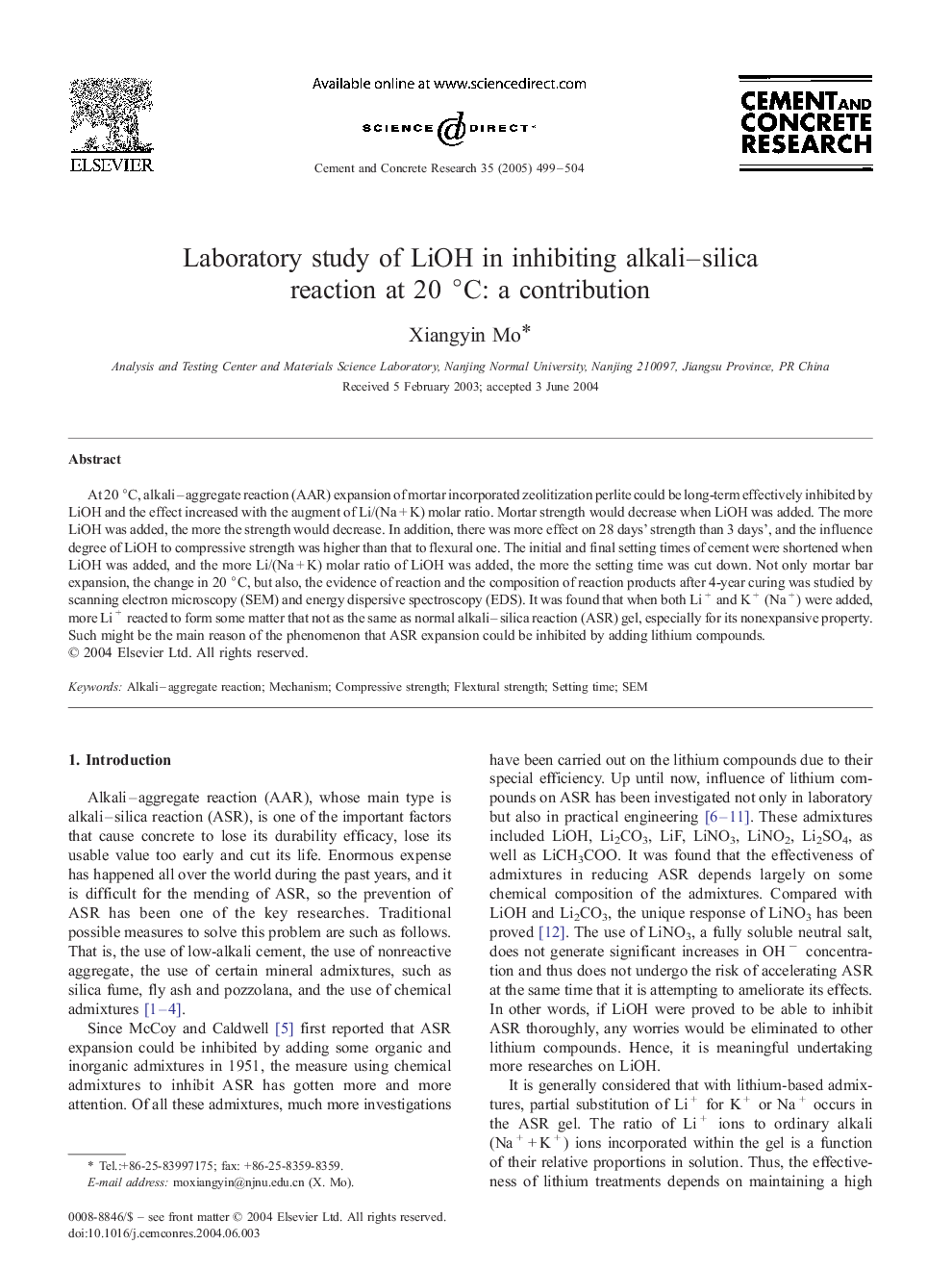| Article ID | Journal | Published Year | Pages | File Type |
|---|---|---|---|---|
| 10622536 | Cement and Concrete Research | 2005 | 6 Pages |
Abstract
At 20 °C, alkali-aggregate reaction (AAR) expansion of mortar incorporated zeolitization perlite could be long-term effectively inhibited by LiOH and the effect increased with the augment of Li/(Na+K) molar ratio. Mortar strength would decrease when LiOH was added. The more LiOH was added, the more the strength would decrease. In addition, there was more effect on 28 days' strength than 3 days', and the influence degree of LiOH to compressive strength was higher than that to flexural one. The initial and final setting times of cement were shortened when LiOH was added, and the more Li/(Na+K) molar ratio of LiOH was added, the more the setting time was cut down. Not only mortar bar expansion, the change in 20 °C, but also, the evidence of reaction and the composition of reaction products after 4-year curing was studied by scanning electron microscopy (SEM) and energy dispersive spectroscopy (EDS). It was found that when both Li+ and K+ (Na+) were added, more Li+ reacted to form some matter that not as the same as normal alkali-silica reaction (ASR) gel, especially for its nonexpansive property. Such might be the main reason of the phenomenon that ASR expansion could be inhibited by adding lithium compounds.
Related Topics
Physical Sciences and Engineering
Engineering
Industrial and Manufacturing Engineering
Authors
Xiangyin Mo,
